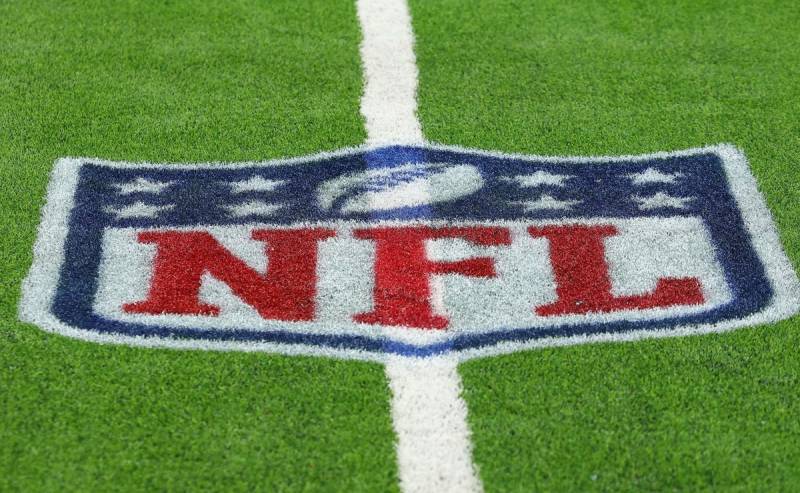 |
|
 |
|
 |
|
 |
|
 |
|
 |
|
 |
|
 |
|
 |
|
 |
|
 |
|
 |
|
 |
|
 |
|
 |
|
암호화폐 뉴스 기사
What Happens if an NFL Playoff Game Ends in a Tie? Overtime Rules Explained
2025/01/18 07:52

The NFL playoffs are a time of great excitement for the best teams of the season. On many occasions, two squads facing each other in a postseason game may end with the same score. To resolve this, overtime is played with special rules, so it is important to understand what happens if an NFL playoff game ends in a tie.
The rules regarding overtime in the NFL have changed over the years, and are even different depending on the instance in which it is played, since it is not the same to reach an overtime tiebreak in the regular season than in the playoffs.
An overtime in the playoffs has even been used to define the Super Bowl champion of the 2023 NFL season, when Patrick Mahomes’ Kansas City Chiefs defeated the San Francisco 49ers 25-22 in overtime. In that game, as in all playoff overtimes, there are rules worth reviewing.
What Makes NFL Playoff Overtime Rules Different?
Regular season overtime differs from playoff overtime in such aspects as the possible outcome, the length of time, the number of periods that can be played, the teams’ first possessions, and the head coaches’ timeouts.
Quarterback Patrick Mahomes of the Kansas City Chiefs looks to throw under pressure from defensive end Nick Bosa of the San Francisco 49ers in the fourth quarter of Super Bowl LVIII
Key differences between regular-season and playoff overtime
In the NFL regular season, if a game ends in a tie, a 10-minute overtime period is played. If a team scores a touchdown on its first series, it automatically wins the game without the opponent receiving the ball. If the first team scores a field goal, the other team gets the ball with a chance to tie with a field goal or win the game by scoring a touchdown. If the score is still tied after 10 minutes, the meeting ends in a tie.
In the NFL playoffs, unlike the regular season, if a game ends in a tie, there is a 15-minute overtime period in which both teams are guaranteed at least one assured possession, regardless of the coin toss.
If a team scores more points on its first possession than its opponent, it wins the game. If the first team to have the ball scores a field goal or touchdown, the other team will have possession to even the scoreboard or surpass it and win. In the event that both teams score the same number of points or fail to score, they must continue to play until they break the tie.
The step-by-step overtime process in the playoffs
What Happens If Overtime Doesn’t Decide the Game?
If overtime does not decide the game in the NFL playoffs, the process continues with additional overtime periods until one team gains an advantage on the scoreboard and wins the game. There are no ties in the NFL playoffs. The game continues with additional 15-minute periods until one team wins.
Post-overtime tiebreakers in NFL playoff games
If overtime does not result in a tie-breaker, there is no traditional, alternative tie-breaker method, as the NFL playoff game will always continue with more overtime periods until a winner is reached. In league history, the maximum number of overtime periods played was two.
Historical examples of extended playoff overtimes
An example of extended overtime in a playoff game is the historic duel known as the ‘Mile High Miracle’, between Baltimore Ravens and Denver Broncos. This meeting, played in the Divisional Round of the 2012 NFL AFC playoffs, was extended to two overtime periods. The Ravens won 38-35, taking one more step in their race to win Super Bowl XLVII.
Another historical example is the Carolina Panthers’ game against the St. Louis Rams in 2004, when the Panthers won 29-23 in the NFC Divisional Round. On that occasion, the game went into the second overtime period, where a Jake Delhomme touchdown pass sealed the victory for Carolina.
Why These Rules Matter in the Postseason
Along the way, the NFL rules have changed. In the beginning, the team that had the first possession in overtime and scored a touchdown to break the tie won the game directly. This made it much more likely to win simply by winning the toss before the start of overtime.
The NFL installed new rules for postseason overtime in March 2022 that would allow each team to get one possession regardless of what the team does with the ball first. This was important because it benefited parity in the game.
Kyle Rudolph #82 of the Minnesota Vikings makes the game-winning touchdown reception against P.J. Williams #26 of the New Orleans Saints during overtime in the NFC Wild Card Playoff game
How overtime rules influence coaching and strategy
In the NFL Playoffs, each head coach is entitled to three timeouts per overtime period. These do not accumulate. Each overtime period begins with three new timeouts for each team. The management of these timeouts is critical for the teams
부인 성명:info@kdj.com
제공된 정보는 거래 조언이 아닙니다. kdj.com은 이 기사에 제공된 정보를 기반으로 이루어진 투자에 대해 어떠한 책임도 지지 않습니다. 암호화폐는 변동성이 매우 높으므로 철저한 조사 후 신중하게 투자하는 것이 좋습니다!
본 웹사이트에 사용된 내용이 귀하의 저작권을 침해한다고 판단되는 경우, 즉시 당사(info@kdj.com)로 연락주시면 즉시 삭제하도록 하겠습니다.
-

-

-

-

-

-

-

-

-

- Michael Saylor의 전략은 딥을 인수하여 1,170 만 달러의 비트 코인을 숨겼습니다.
- 2025-03-18 04:50:57
- Dave Liedtka | 블룸버그




























































